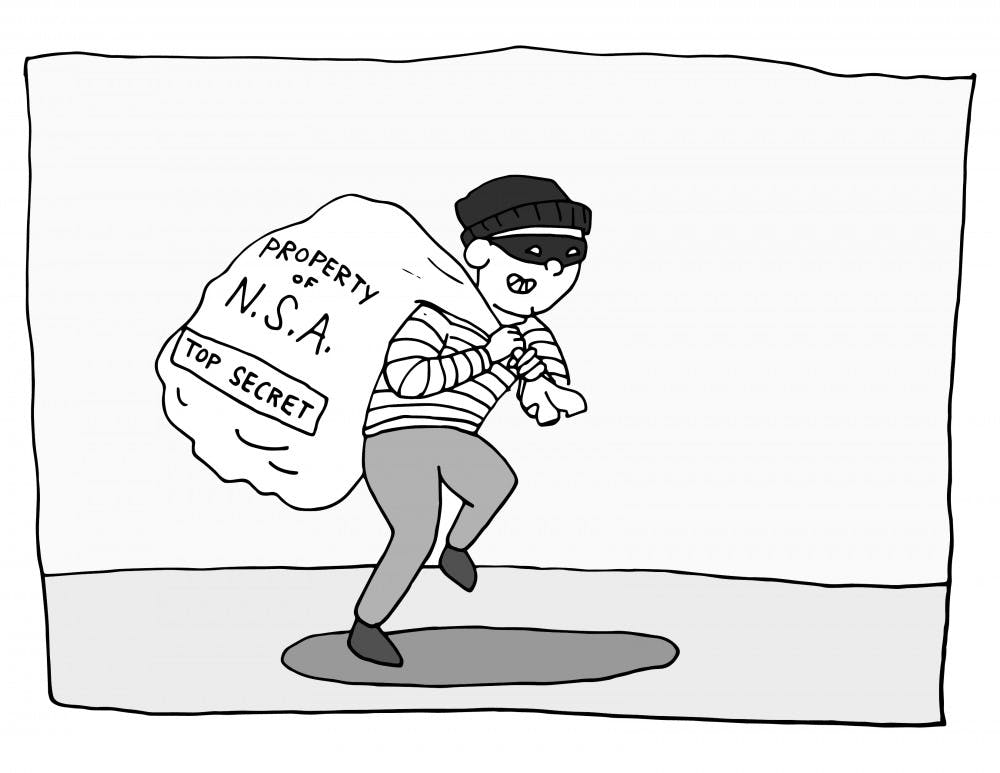Yet another American accused of stealing state secrets from the National Security Agency has been federally charged under the Espionage Act of 1917.
Harold T. Martin III, an NSA contractor who was arrested in August, joins the ranks of Edward Snowden and Chelsea Manning as accused enemies of the state, with their crime being the subversion of the U.S. government’s obsession with preventing public knowledge of its vast surveillance apparatus.
What’s interesting about Martin is that it doesn’t appear he divulged the “astonishing” amount of data he stole from the NSA to any media outlet or foreign government.
Instead, Martin allegedly gathered more than 50 terabytes of NSA documents since 1996, storing them on heavily encrypted devices. Some of what Martin stole were “hard-copy documents that were seized from various locations ... that comprise six full bankers’ boxes worth of documents” according to official charges filed by the government.
To put the scope of information Martin had in his possession into perspective, one terabyte is equal to 500 hours’ worth of movies or 10 million pages. Even more astonishing, Martin has been denied bail on the pretexts that he’s a flight risk and a target of foreign intelligence.
Whenever stories of this nature occur, public discussion fails to note how harshly the government punishes those who undermine its total authority.
The Espionage Act of 1917 was initially used to persecute those who spoke out against World War I and has since been used to criminalize major subversion against the government.
Julius and Ethel Rosenberg were both executed under the Espionage Act in the 1950s. Daniel Ellsberg was charged with espionage after publishing the Pentagon Papers, which contained secret U.S. documents about the Vietnam War.
The Obama administration has expanded the Espionage Act to include the leaking of state secrets to the media, as evidenced by Edward Snowden. Expanding the interpretation of the law only broadens the scope of what the government can deem illegal under the pretext of “national security.”
Even if U.S. personnel are not endangered by a leak, as was the case with Snowden, charges of espionage may be leveled even if that person hasn’t actually spied on the U.S.
Expanding the definition of treason will allow for the state to freely engage in political persecution against dissenters.
Too often do proponents of state surveillance say, “if you have nothing to hide you have nothing to worry about.” What these people fail to recognize is that mass surveillance doesn’t exist for hunting down criminals — it is a means for mandating compliance with the state.
These effects have already been observed in the wake of the Snowden leaks.
A report released by PEN America in 2013 revealed the effects of government surveillance on U.S. writers. The report found that writers “not only overwhelmingly worried about government surveillance, but are engaging in self-censorship as a result.”
Consequentially, “24 percent have deliberately avoided certain topics in phone or email conversations.”
The ubiquitous nature of the U.S. surveillance state has gradually eroded what can be understood as “privacy” in the world today, and the brutal prosecution of Harold Martin is a direct symptom of this.
To end, consider this now infamous passage from George Orwell’s 1984: “How often, or on what system, the Thought Police plugged in on any individual wire was guesswork. It was even conceivable that they watched everybody all the time ... You have to live — did live, from habit that became instinct — in the assumption that every sound you made was overheard, and except in darkness, every movement scrutinized.”




